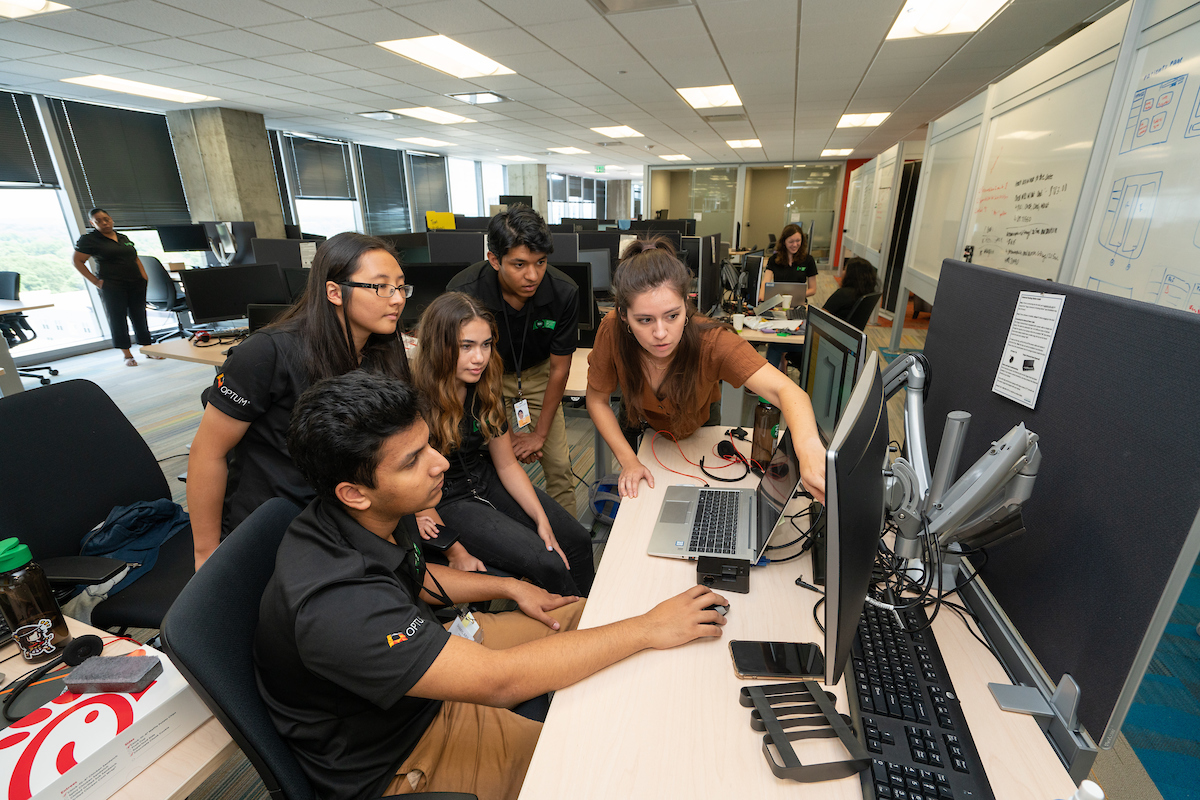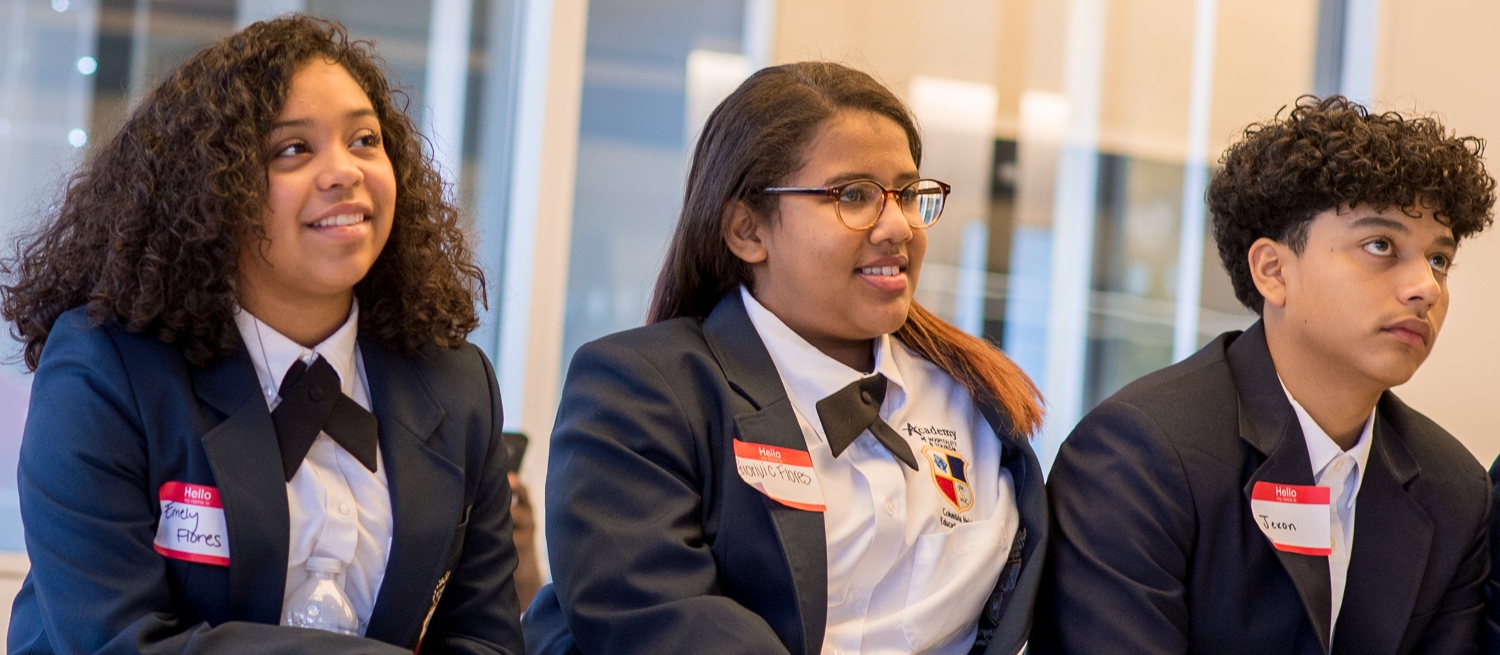A New Era Begins for Work-Based Learning
NAF is excited to announce the launch of the outcomes-driven approach to work-based learning (ODWBL)! This innovative framework focuses on 3 specific outcomes for students to achieve by the end of high school. ODWBL helps to equip students with the mindset, skills, and connections necessary to navigate their professional journey after high school.
Aspirations
Each student will have defined and mapped a plan for at least one career path.
Work-based learning activities help students explore careers of interest, set goals for themselves, and make action plans to accomplish milestones along the way. As they navigate their unique journeys to discover what they do or do not want to pursue along their skills-driven path, they will continue to learn, connect, and reflect on their growth towards college and career readiness. It also enables students to make more informed decisions about their next steps after high school, including whether they want to enter the workforce immediately or go to college and what they want to study.
Skills
Each student will have worked to develop the 6 Future Ready skills, received continuous feedback from industry partners, Advisory Board members, and/or local community professionals, and be able to articulate their strengths.
Data from many sources and anecdotes from countless interviews with professionals consistently emphasizes the importance of skills that transcend any one particular field. We collaborated with MHA Labs to build on their extensive research into which specific skills are the most in-demand and best suited to help students thrive in the careers of today and tomorrow. From informational interviews to internships and many more, WBL activities focused on opportunities to build one or more of the Future Ready Skills to help students continuously expand and improve their skills. Getting feedback from employers enables students to gain confidence and also better understand where they still need to grow.
Connections
Each student will develop at least three professional connections.
Building social capital is more important than ever. A number of publications and sources note that as many as 85% of jobs are obtained through networking and that 70% or more of these positions are never advertised. It is essential for students to build strong networks in order to position themselves for success in earning an internship or job that aligns with their goals. Throughout their NAF academy experience, specifically work-based learning activities, students will learn how to develop, sustain, and leverage network connections to help them pursue their college and career aspirations and build their social capital. This network will layer in an ecosystem of support, on top of a student’s hard work and capabilities. WBL activities should be designed to help students intentionally build these professional relationships, so this important component is not left to chance.
Benefits of ODWBL
Increased focus on student voice and equity of opportunities
Giving students opportunities to reflect and share their perspective is essential on multiple levels. It helps them recognize their growth over time, it creates more buy-in, and it provides valuable information for use in future WBL planning. Equity of opportunities is also at the center of the outcomes-driven approach. If most students are only participating in 1-2 WBL activities and then somehow, a small subset are participating in 3+, not all students are getting access to the activities that will help them be prepared for what’s next.
Specific, defined outcomes vs. general WBL activities
Having tangible outcomes to work towards provides educators, students, Advisory Board members, industry partners, and community members with a shared sense of purpose and direction, rather than each person having their own definition of what WBL outcomes should be.
Impact by design, not default
The outcomes-driven approach also focuses on design with outcomes in mind, rather than just on the nuts and bolts of a particular activity. Elevating the impact of work-based learning activities on students is key. An educator who participated in one of NAF’s pilots pointed to this focus on impact, noting that ODWBL offers teachers, students, and Advisory Board members the opportunity to pinpoint the type and why of a work-based activity experience and isn’t just going on a field trip.
Cycle of continuous improvement informed by data
NAF’s outcomes-driven approach uses individual-level student data as a catalyst for continuous improvement of WBL activity planning, implementation, and assessment. Through a suite of technology tools developed by NAF and tested by educators, students, and partners, academies now have the ability to track data at a deeper level than ever before.
Resources
NAF’s Work-Based Learning team has developed a collection of ODWBL resources, co-designed with educators and students. These videos, templates, lesson plans, and short guides are free and publicly accessible.
Visit the following pages to learn more:
- Outcomes-Driven Work-Based Learning
- Future Ready Skills
- Designing WBL Activities for Impact
- Tracking WBL Activities for Impact
We hope the 2023-2024 academic year is one of growth and development, fueled by work-based learning, enabling students to identify careers of interest, build skills, and expand their professional network. We look forward to seeing and hearing how the ODWBL approach is being implemented and how it is elevating the impact of WBL activities on students.






